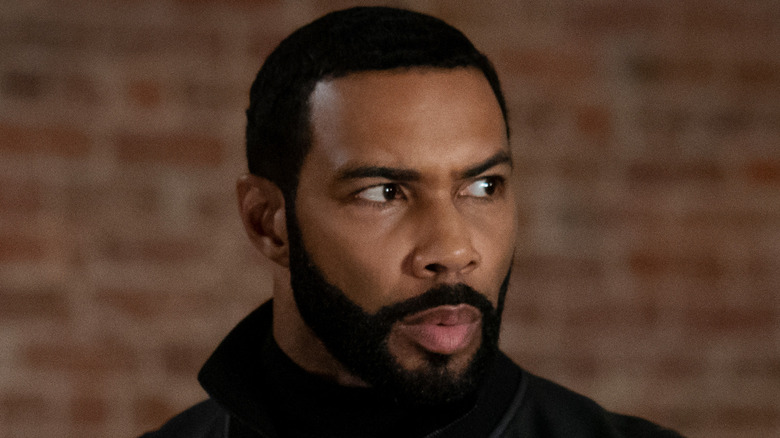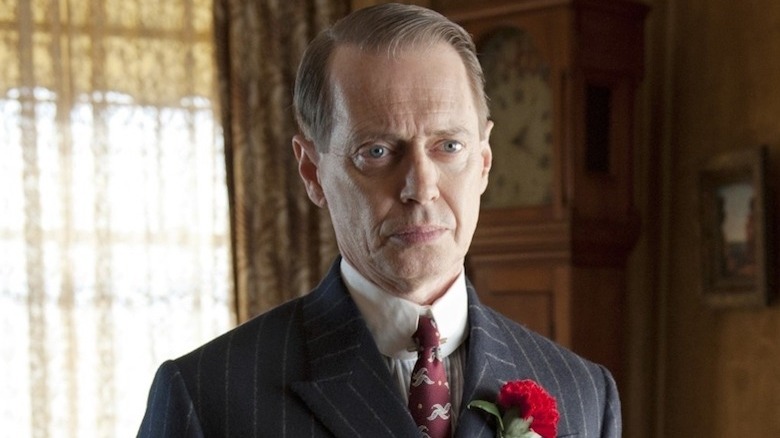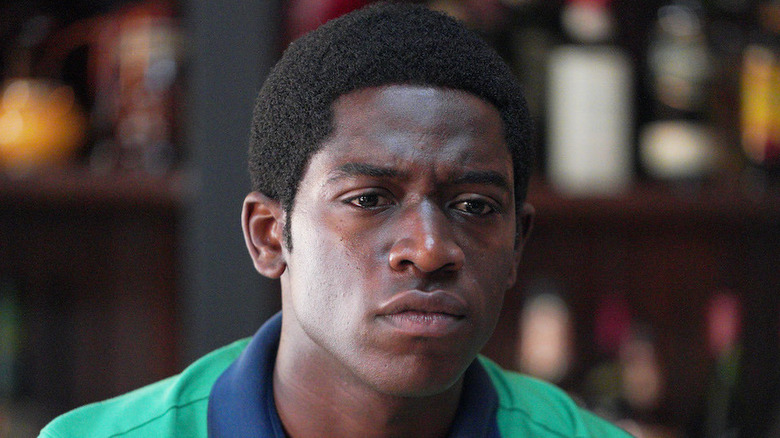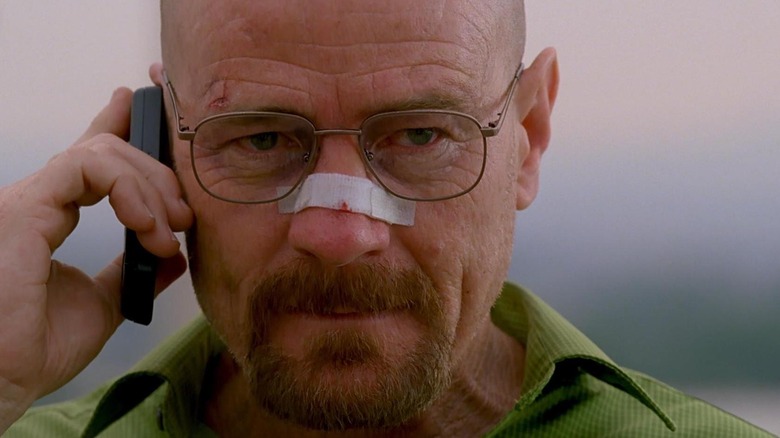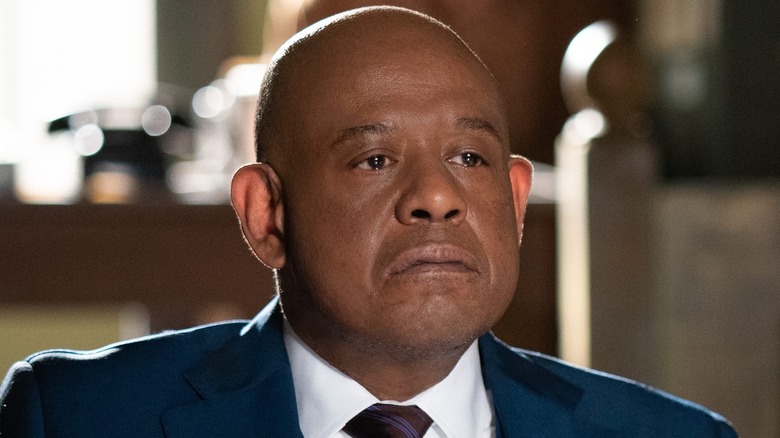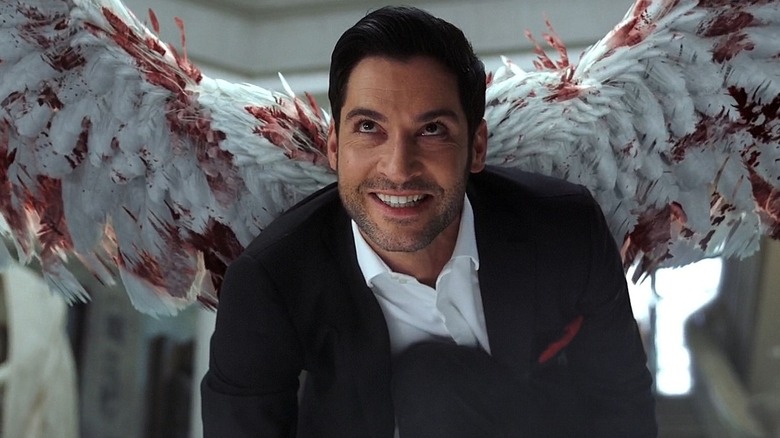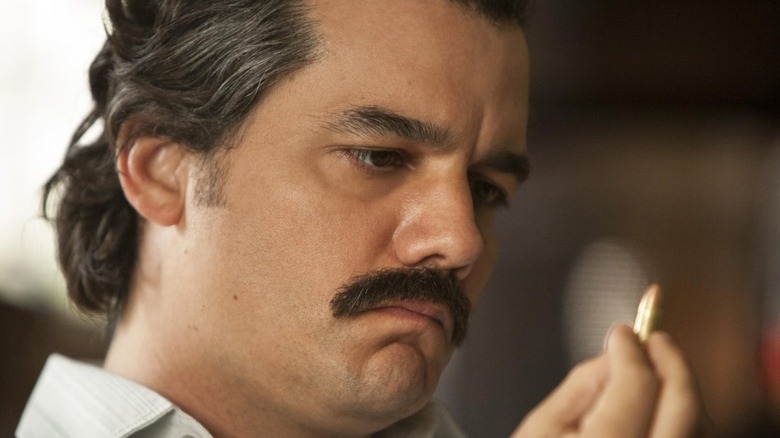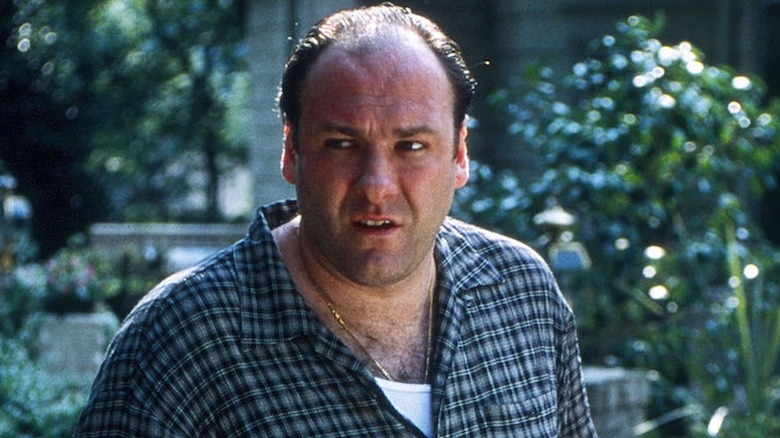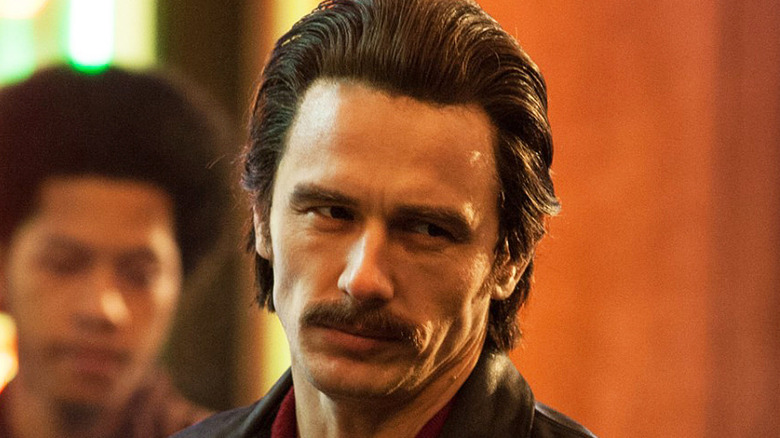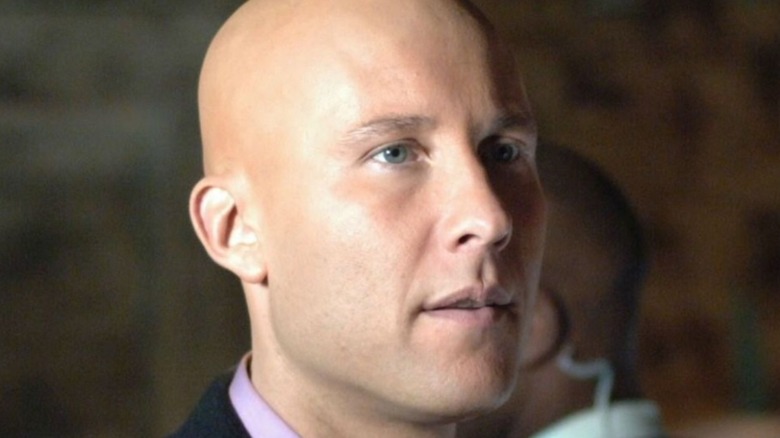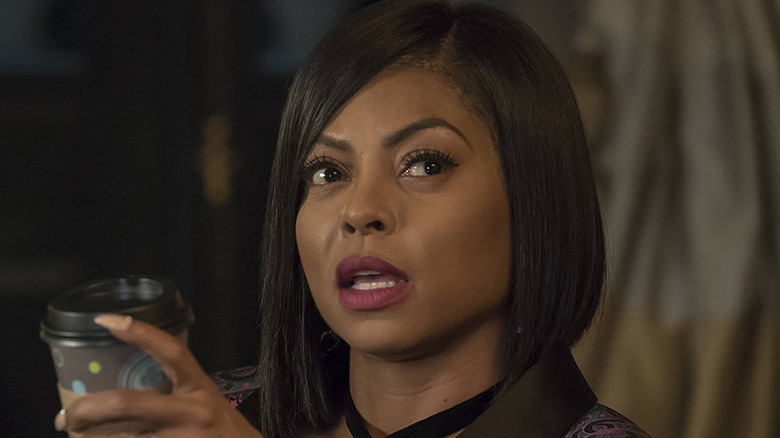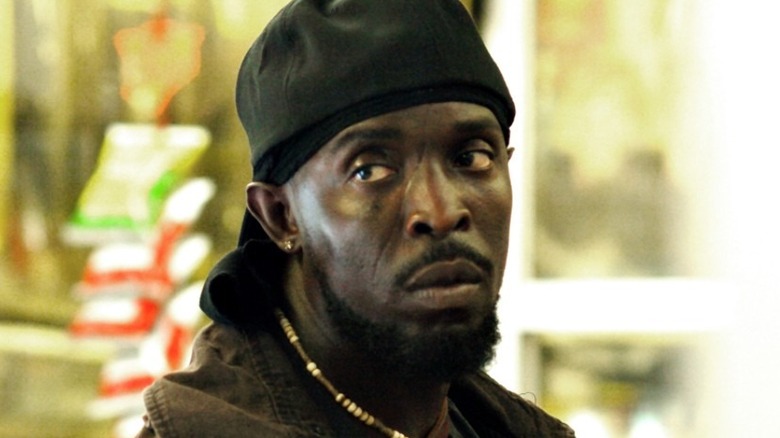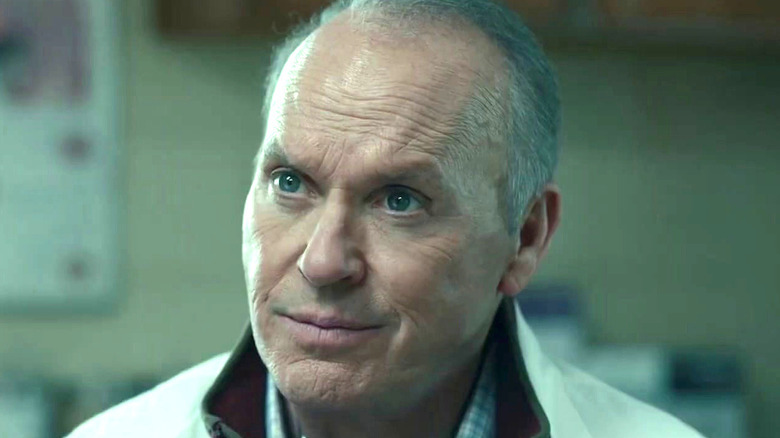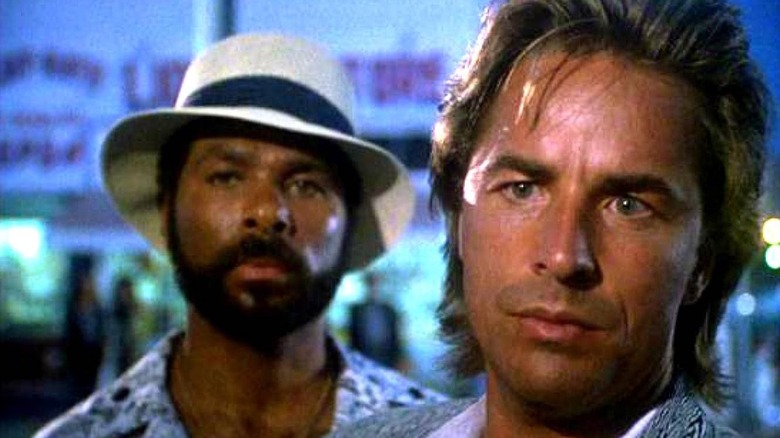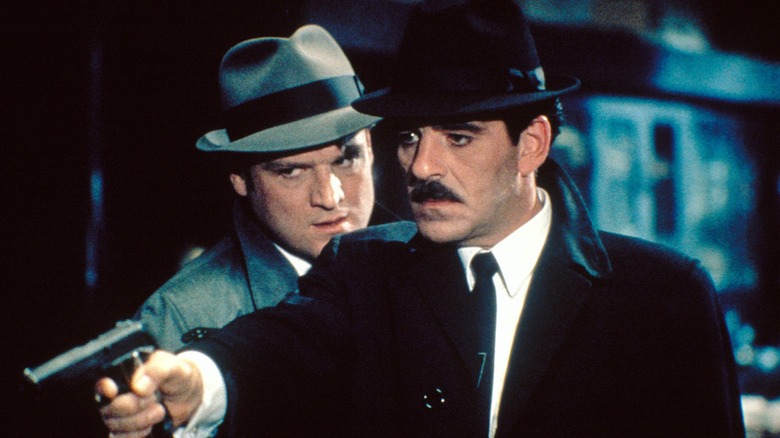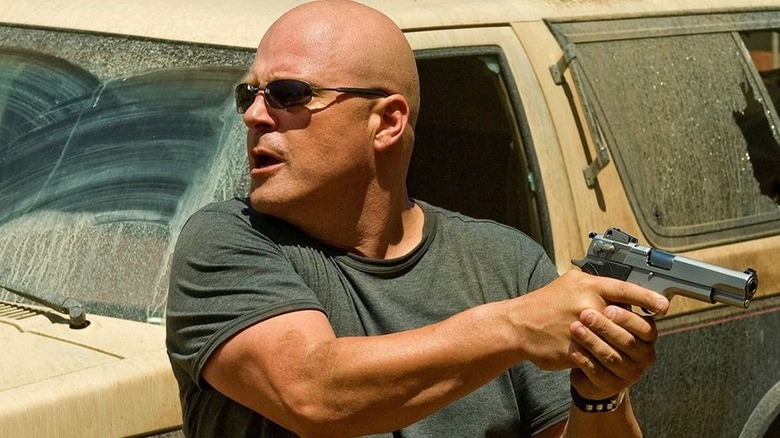Shows Like Power That Crime Drama Fans Need To Watch
We may receive a commission on purchases made from links.
Starz's "Power," starring Omari Hardwick, follows James "Ghost" St. Patrick and his conquest of New York's drug trade. The show sees Ghost, a big-time New York City drug kingpin, try to go straight by buying a nightclub and slowly shifting into more legitimate forms of business. Unfortunately, destiny has other plans, and Ghost finds himself drawn back into the fray, only to realize that he prefers being a criminal. The series ran for six seasons and 63 episodes, finally ending its run in 2020.
In an unprecedented move, the Starz network created three spin-offs that will expand the world of the original show. "Power Book II: Ghost" follows Michael Rainey Jr.'s Tariq after the events of the original series finale, while "Power Book III: Raising Kanan" is a prequel about the childhood of the character played by 50 Cent in the parent show. "Power Book IV: Force" will launch in 2022 and follow fan-favorite Tommy (Joseph Sikora) as he enters the drug racket in Chicago.
Thanks to these spin-offs, fans of "Power" will have no shortage of adventures to watch on Starz, but there's always room for more stories about suit-wearing criminals and their empires of sin. Here are 15 shows about hard drugs, glamorous nightclubs, crooked lawmen, and wannabe kingpins who want more from this world and don't care how many people they have to hurt in order to get what they want.
Boardwalk Empire
During the Prohibition Era, gangsters made their fortune on alcohol. Set during this period, HBO's "Boardwalk Empire" stars Steve Buscemi as Nucky Thompson, a New Jersey politician who moonlights as a ruthless gangster. Produced by Martin Scorsese and created by "The Sopranos" veteran Terence Winter, "Boardwalk Empire" went on to win 20 Emmy awards, and is championed as the heir to the network's earlier hits.
Like "Power," "Boardwalk Empire" shows criminal kingpins as businessmen who adhere to the laws of supply and demand. Whether it's cocaine or whiskey, there will always be a demand for illegal substances, and less savory types will always show up and meet that demand. The parallels to the modern War on Drugs are obvious, and a big part of "Boardwalk Empire's" appeal comes from its insight that, despite being set nearly 100 years in the past, not much has changed.
Prohibition's "war on alcohol" ended in 1933 with the repeal of the 18th Amendment. The War on Drugs, meanwhile, rages on, though the widespread legalization of marijuana is seen as a major milestone in the loosely defined conflict.
Snowfall
"Power" doesn't dwell too much on the impact of Ghost's drug empire on his community, since the story mostly follows characters who deal drugs, not the people who use them. For context on America's War on Drugs, "Snowfall" on FX offers an intimate look at Los Angeles in the early 1980s during the first crack epidemic. Created by the late John Singleton, "Snowfall" follows various characters, including teenage drug dealer Franklin (Damson Idris) and a CIA agent, Teddy (Carter Hudson), who is using drug profits to fuel Cold War proxy conflicts in South America.
The 1980s War on Drugs and its relationship to the CIA, foreign wars, and racism in the inner cities is a tremendously complex topic, but "Snowfall" navigates it with a light-handed and stylized touch, telling a thrilling and entertaining story while touching on core truths about the harsh realities of the American Dream. Like Ghost in "Power," Franklin becomes a ruthless drug lord, but due to his youth and desperation, he comes across as a much different character from other protagonists who "break bad" during their story arcs.
The show also examines the hypocrisy and injustice of the era and its legacy. Traditionally, cocaine is snorted as a powder, but it's easy to turn that powder into a crystalline rock; when smoked, the drug instantly takes effect, much faster than snorting cocaine. Aside from that, however, there's no real difference between cocaine and crack... Except for the amount of crack needed to trigger a mandatory minimum jail sentence being significantly lower than for cocaine.
Breaking Bad
Bryan Cranston will forever be remembered as Walter White, the mild-mannered chemist turned crystal meth kingpin of AMC's hit series, "Breaking Bad." While Walter White isn't the first protagonist to go on a journey from innocence into villainy, and "Breaking Bad" certainly owes a particular debt to Al Pacino's Michael Corleone from "The Godfather" films, it's impossible to overstate the impact of "Breaking Bad" on the state of modern television, which entered a second "Golden Age" starting in the 2000s.
Like Ghost, Walter White takes a turn when he learns that he is addicted to the thrill of being a big, bad drug dealer. White starts out with the aim of making enough money to pay for his overpriced cancer treatments, but winds up staying in the drug game because he likes taking down his enemies and staying one step ahead of the law. If Ghost and Walter ever met, they'd have a lot to discuss over lunch.
Unlike other drugs, which are often sourced from foreign countries, crystal meth is made primarily by mixing household chemicals with over-the-counter medications. While the real-life explosions at meth labs indicate the process is a bit trickier than mixing a cocktail, the fact remains: Basically anyone can make crystal meth if they really want to, but it probably won't be a top-shelf product like Walter White's "Blue Meth."
Godfather of Harlem
Forest Whitaker stars as real-life gangster Bumpy Johnson in EPIX's "Godfather of Harlem." Recently released from a 10-year stint in prison, Bumpy returns to his Manhattan neighborhood to find it ruled by the Italian mob. He aims to seize control of the heroin trade and take Harlem back, but don't mistake Bumpy Johnson for some kind of hometown folk hero. He's a gangster and a drug dealer just like the men he fights. In addition to his fight against the Italian Mafia, "Godfather of Harlem" also examines Bumpy's relationship with his family and his attempts to somehow be a normal family man despite his atypical career choices.
"Godfather of Harlem" examines the role of criminals in shaping history alongside their more legitimate counterparts, with much of the story informed by events like the JFK assassination and Malcolm X's rise to prominence in the 1960s. In fact, Malcolm is played by Nigél Thatch, who previously played the controversial civil rights activist in 2014's "Selma." The series also stars Vincent D'Onofrio as Vincent "The Chin" Gigante, the local Mafia boss standing in Bumpy's path. The show is also notable for using original songs written specifically for the series, featuring rappers like French Montana, Rick Ross, and the late DMX.
Lucifer
In "Power," Ghost decides to go straight by opening a nightclub in the city. Likewise, "Lucifer" sees its title character, Lucifer Morningstar (Tom Ellis), retire from hell and open a nightclub in Los Angeles. Of course, like Ghost, Lucifer can't quit being who he is, and is inevitably drawn back into his field — not the drug trade, but the never-ending battle between good and evil.
Loosely based on the DC/Vertigo comic book character created by Neil Gaiman for "The Sandman," Lucifer marks one of the rare shows that was canceled by one network before being successfully revived by another; after three seasons on FOX, the show was nixed and picked up by Netflix for three more seasons. It ended its run in 2021, but not before Lucifer made a surprise appearance in the Arrowverse's Crisis on Infinite Earths event, establishing the setting of Lucifer as Earth-666.
Narcos
One of the most famous criminals of all time, Pablo Escobar and his Medellín cartel had an iron grip on the cocaine trade from Colombia to the United States. His story, and particularly his 1980s heyday, is documented in "Narcos," a Netflix original series starring "Elite Squad's" Wagner Moura. The series pulls no punches in its depictions of the global geopolitics that enabled Escobar's rise to power, as well as the polarizing reputation of Escobar himself, who is seen by some as a folk hero, and an outright monster by others.
After Season 3, which wrapped up the "Colombia" storyline of the series, it was retooled into "Narcos: Mexico," starring Michael Peña and Diego Luna, which follows the international drug trade in 1980s Mexico. Several actors reprise their roles from the original "Narcos," to which "Mexico" can be seen as a companion piece, spin-off, or even an outright continuation. Based heavily on real-life facts, both "Narcos" series take some creative liberties here and there, but are generally praised for their accuracy regarding the heroes and villains of the illegal drug trade in Latin America, an industry that influences the whole world. In particular, the Mexico seasons do a tremendous job of showing how such a beautiful country became ravaged by cartel drug wars. To this day, many areas of Mexico are governed by the cartels that effectively own the local government and police.
The Sopranos
Every television gangster owes a debt to Tony Soprano, portrayed by the late James Gandolfini on HBO's six-season masterpiece, "The Sopranos." Vince Gilligan, the creator of "Breaking Bad," said the character of Walter White would not exist without Tony Soprano. Tony's day-to-day existence is a paradox; like Ghost, he's trying to exist in two worlds at once, one legitimate and one criminal. It's an unsustainable status quo. "The Sopranos" sees the Mafia patriarch visit a therapist (Lorraine Bracco) in an attempt to sort through his baggage and become a better father, husband, and criminal mastermind.
Created by David Chase, "The Sopranos" was an unprecedented success for HBO, earning 21 Emmy awards and elevating the network into a TV powerhouse. Every HBO show, and every show involving gangsters, is compared to "The Sopranos." Most recently, David Chase wrote "The Many Saints of Newark," a prequel film that explores the circumstances that led a teenage Tony Soprano (played by James Gandolfini's son, Michael) to dedicate his life to organized crime.
The Deuce
"Power" is set against the backdrop of New York City's bustling nightlife, but NYC is not the city it once was. Back in the 1970s, it was a different place, "something like a circus or a sewer," simultaneously terrifying and inviting. This dangerously exciting locale marks the setting for HBO's "The Deuce," starring Maggie Gyllenhaal, James Franco, and Dominique Fishback. Created by David Chase ("The Wire"), "The Deuce" was named for its setting in the Times Square area. Far from today's tourist-friendly, sanitized haven of chain restaurants and big-box stores, the old 42nd St. was a haven for peepshows, drugs, and every other vice under the sun. It was also a place where people with nothing could "make it big," if they worked hard and got lucky. In this fantasy playground of glorious debauchery, the disparate protagonists, who all hail from different walks of life, try to chase their version of The American Dream.
Like life itself, "The Deuce" is grim, but optimistic. The characters are surprisingly inspiring when they muster up the grit to keep on going despite their crippling adversity, and heartbreaking when they learn that sometimes, grit is not enough. "The Deuce" only ran for three seasons, a total of 25 episodes, but it's enough to tell a complete story, a poetic encapsulation of how New York City earned its hard-edged reputation.
Smallville
Bad guys always start out with good intentions. Nobody sets out to be "the villain of the story." Ghost in "Power" tries to go straight, but he realizes that, for better or worse, that's not who he is in this world. That doesn't excuse any of his actions, but it does provide precious context for his life choices over the course of the series. Likewise, while "Smallville" is an origin story about a young Clark Kent learning about his powers and how he can use them to change the world, it is also a story about Lex Luthor and his slow turn towards villainous destiny.
For an entire generation of fans, Michael Rosenbaum is the definitive version of Lex Luthor. His arc, starting out as a spoiled rich friend of Clark Kent who eventually becomes his greatest enemy, is a grandiose Shakespearean tragedy. The show undeniably lost a bit of momentum following the seventh season, when Rosenbaum left the series, but at least he returned for the grand finale, giving his character a proper conclusion as Tom Welling's Superman finally unveiled himself to the world.
Empire
Unlike Ghost, Lucious and Cookie Lyon of the hit FOX series "Empire" got out of the drug trade and went legitimate, starting Empire Entertainment. That doesn't mean they're able to keep themselves completely clean. Nobody can escape their past, and, as they say, the bill always comes due. Terence Howard plays Lucious, and Taraji P. Henson is perfect as Cookie, even earning two Emmy nominations for her performance. Their back-and-forth banter and constant soap opera scheming helped make "Empire" a breakout success.
While certainly full of drama, "Empire" is a bit closer to something like the classic 1980s series "Dallas" than the dark and gritty crime drama of "Power," though the body count on "Empire" is higher than one might expect. With that in mind, "Empire" is a great example of how attempts to "go straight" after a lifetime of crime rarely go as planned. Even if Ghost hadn't dived headfirst back into being a criminal kingpin, his past would have never allowed him any measure of peace. It was only ever a matter of time before something, and then everything else, went wrong.
The Wire
The ultimate "gritty urban crime drama," HBO's "The Wire" completely deconstructed and revolutionized the entire "cop show" genre. While series like "NYPD Blue" were unprecedented in their realism and controversial depiction of crooked cops, "The Wire" took things to a whole other level. Creator David Simon cut his teeth as a police reporter for The Baltimore Sun, an experience that clearly inspired his work on "The Wire." Rather than a weekly procedural or a story of good vs. evil, "The Wire" is a completely different take on the classic tale of cops and robbers. The show follows the police and the criminals in equal measure, focusing on the bureaucracy and politics that hamper the police force as they attempt to combat the drug trade in Baltimore, Maryland, decades after the "War on Drugs" was declared a lost cause by the world at large.
"The Wire" was revolutionary, but didn't get the appreciation it deserved until after it finished its five-season, 60-episode run. "The Wire" helped launch the careers of many of its stars, including the late Michael K. Williams, Idris Elba, Michael B. Jordan, Dominic West, and Lance Reddick, among many others. The show is more popular now than it ever was during its 2002-2008 lifetime, and it's a testament to HBO's faith in the series that they didn't cancel it outright.
Dopesick
Shows like "Power" and "Empire" prove there's a fine line between a criminal and a businessman. The premise of the Hulu original, "Dopesick," explores the opioid crisis and how legal prescription drugs were proliferated by big pharmaceutical companies who put profits ahead of the Hippocratic Oath to "do no harm." Based on the nonfiction book, "Dopesick: Dealers, Doctors, and the Drug Company That Addicted America" by Beth Macy, "Dopesick" examines all angles of the opioid epidemic, from the big businesses who market their drugs to the working-class victims who become addicted to "hillbilly heroin," as it is called. The show features an ensemble cast including Michael Keaton, Will Poulter, and Rosario Dawson.
"Dopesick" is a fictionalized drama, but it plays out very much like a snapshot of Americana's latest drug crisis. Michael Keaton, in particular, has earned rave reviews for his performance as a doctor who prescribes Oxy to his patients at the insistence of Purdue Pharma, whose reps lie through their teeth about the addictive nature of their painkiller. Eventually, Keaton's character, Dr. Samuel Finnix, gets addicted himself, after having turned a number of hardworking people into unwitting junkies.
Miami Vice
The drug trade is rooted in one simple concept: capitalism. The basic laws of supply and demand dictate that a supply must always exist to meet demand, legality be damned. It's the main driving force of "Power," and it was the main driving force of "Miami Vice," the coolest show of the 1980s. "Miami Vice" is sometimes criticized for glorifying the War on Drugs, but only by people who have never seen the show, or only know it for its depiction of cool cops in fast cars wearing designer clothes and hanging out in swanky nightclubs.
In reality, "Miami Vice," starring Don Johnson and Philip Michael Thomas, was a scathing indictment of the War on Drugs and unfettered capitalism. The villains were presented as businessmen providing goods and services, while the heroes were frequently insulted with the phrase "$400-a-week cop." As for the fast cars and fancy clothes, those were all seized from drug busts and used by the Vice squad to maintain their undercover personas. As the show progressed, the characters, particularly Don Johnson's Sonny Crockett, became increasingly cynical and disillusioned with their work, busting small-time dealers but rarely ever getting a shot at the real kingpins, who always got away, often with the help of the government.
"Miami Vice" was a game-changer for the medium of television, with its distinct visual language (written by producer Michael Mann) creating a sun-soaked film noir tone that inspired countless imitators. Meanwhile, its use of pop music in key storytelling sequences was revolutionary, and is still copied across film and television to this day.
Crime Story
After striking gold with "Miami Vice," producer Michael Mann created "Crime Story," starring Dennis Farina and Anthony Denison. They play a cop and a criminal, respectively, and unlike more episodic shows that dominated the era, "Crime Story" focuses squarely on the war between these two men in the early 1960s, one chapter at a time. The ambitious crime drama adopts a form of serialized storytelling that wouldn't become the norm for another 30 years, and as such, is easy to binge-watch today. While the content might seem relatively tame by today's standards, Dennis Farina's performance as Mike Torello has a Gene Hackman-like intensity, in that the viewer truly believes he could snap at any moment. The threat he delivers to a criminal in the pre-titles sequence of the pilot has such righteous hatred behind it, it's enough to solidify Farina's status as an acting legend.
In addition to its innovative storytelling and fully realized 1960s setting, "Crime Story" is also notable for its theme song, a re-recorded version of Del Shannon's 1961 hit, "Runaway." The new version, by the original artist, contains altered lyrics that reflect the dark themes of the series. Sadly, "Crime Story" was canceled after only two seasons, leaving its story unfinished. Nevertheless, the show remains a cult favorite for its deconstruction of the toxic masculinity that defined tough guys of the era, as well as its gripping storytelling and behind-the-scenes kinship with "Miami Vice."
The Shield
One of the FX network's original breakout hits, "The Shield" ran for seven seasons and 88 episodes. The show follows the LAPD's Strike Team, led by Vic Mackey (Michael Chiklis), a crooked cop who dishes out his own brand of street justice while lining his pockets with drug money and openly engaging in illegal tactics. Some characters see Vic as a righteous gunslinger keeping the city in line, while others see him as a corrupt monster; after all, the first episode ends with the shocking twist of him murdering an undercover cop (Reed Diamond) trying to infiltrate the Strike Team and get dirt on Mackey.
It's easy to see Ghost from "Power" on a crash course with someone like Vic from "The Shield," but it's impossible to know who would emerge victorious. Machiavellian schemers that they are, maybe they'd strike some kind of agreement. Crooked cops can always bend further if the money is good enough, and Ghost has a lot of money. Still, he also puts a lot of drugs out on the street, and someone like Vic can only turn a blind eye for so long before his superiors get suspicious. Maybe it's for the best that these two anti-villains never crossed paths.
